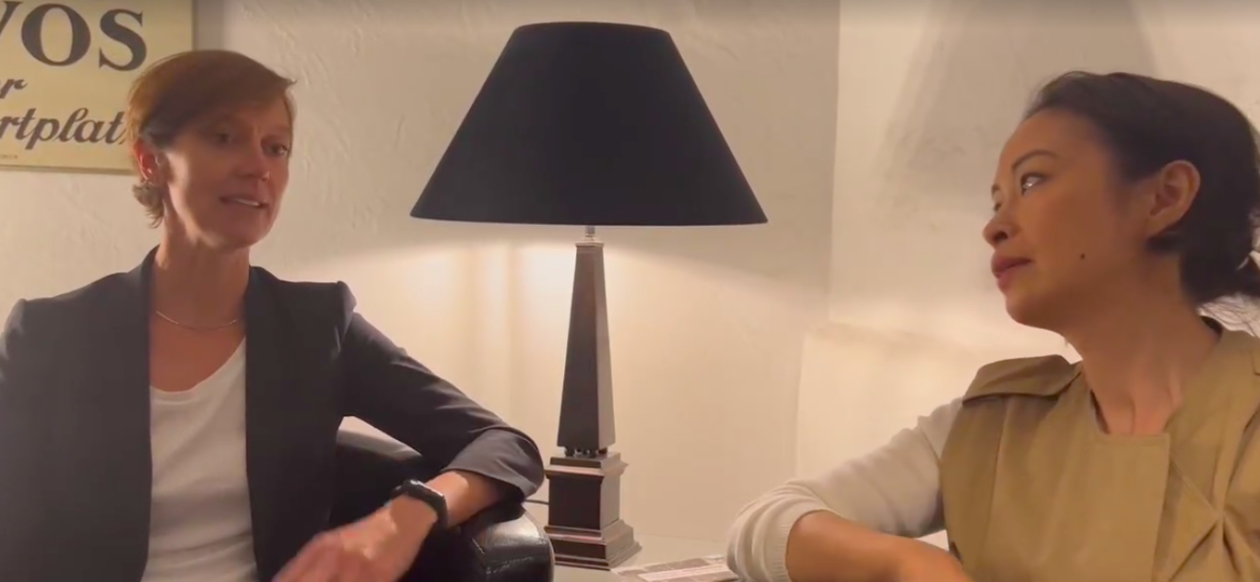Blockchain’s inclusivity means the technology will play an outsized role in a world that is moving towards a more connected future, Marieke Flament, the chief executive officer of NEAR Foundation told Forkast editor-in-chief, Angie Lau, in an interview.
“My takeaway from Davos … is that crypto is not something that can be ignored anymore,” Flament said. “It’s part of the conversation. It’s open, it’s actually inclusive, and it wants collaboration, and it can help solve some of our biggest challenges,” she added. The NEAR Foundation is a Swiss-based nonprofit that supports the NEAR protocol ecosystem through its financial and operational resources.
“Most of the spaces are very open,” said Flament, referring to the Web 3.0 companies in Davos. “You don’t need a badge to get in, you can get in.” The crypto companies are open to everyone to share ideas and communicate, she added.
“And then you look at the … traditional part is very guarded and you need a badge and you have guards at the entrance and you can’t get in,” she said, referring to the centralized nature of the gathering in Davos. This is indicative of how large companies are out of bounds for commoners, in Davos and elsewhere, she said.
With the Ukraine-Russia crisis raging on and climate change becoming a glaring reality, “we really need to lean on technology because we are facing some of the biggest challenges we’ve ever faced,” Flament said.
NEAR Protocol cofounder Illia Poloshukhin was among the handful of crypto entrepreneurs who set up the Unchain Fund, a decentralized autonomous organization (DAO) that raised US$9.6 million to support humanitarian efforts in Ukraine.
Flament’s comments come as governments around the world step up regulation of the sector plagued by frequent frauds, high-profile run-on-the-banks, and misrepresentation from the anonymity blockchain and cryptocurrency offer. This has taken the focus away from the speed of execution blockchain technology offers.
To further promote inclusivity, boost adoption, and speed up regulation, it is important that crypto natives and founders promote the understanding of the technology and make it less intimidating, Flament said. “We have a duty to make it palatable and to actually make it intelligible,” she added.
But more importantly, Web 3.0 developers need to build programs and solutions with the aim of solving humanity’s biggest challenges, Flament said. “Building technology with purpose, with intention, [building] for the long term and for sustainability, and to rebuild and create a better world, I think is absolutely fundamental.”





